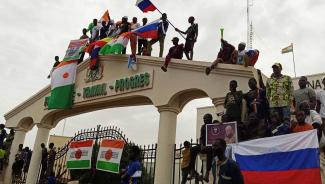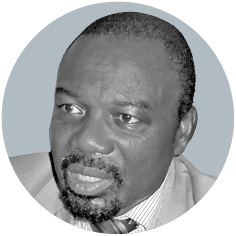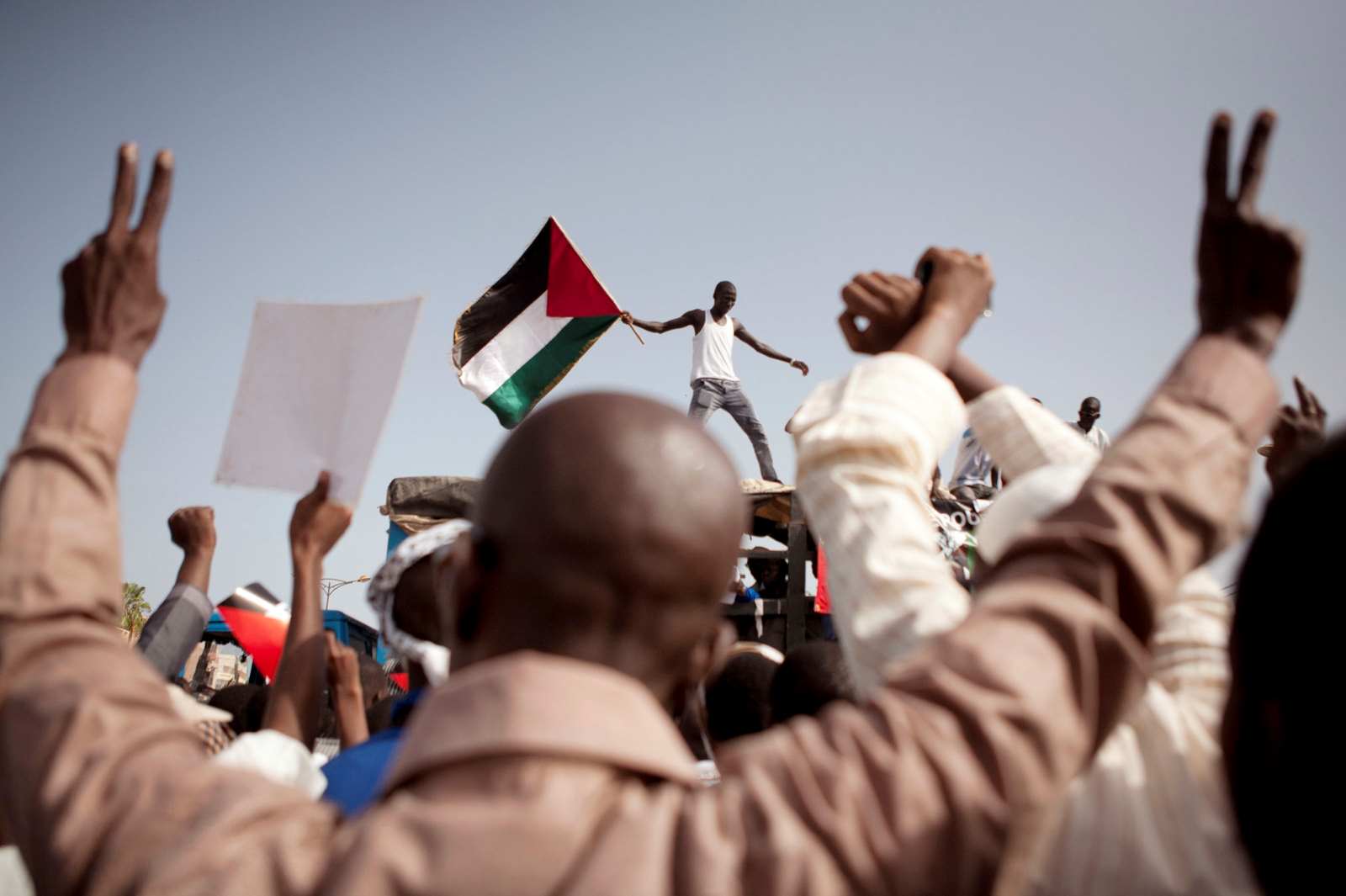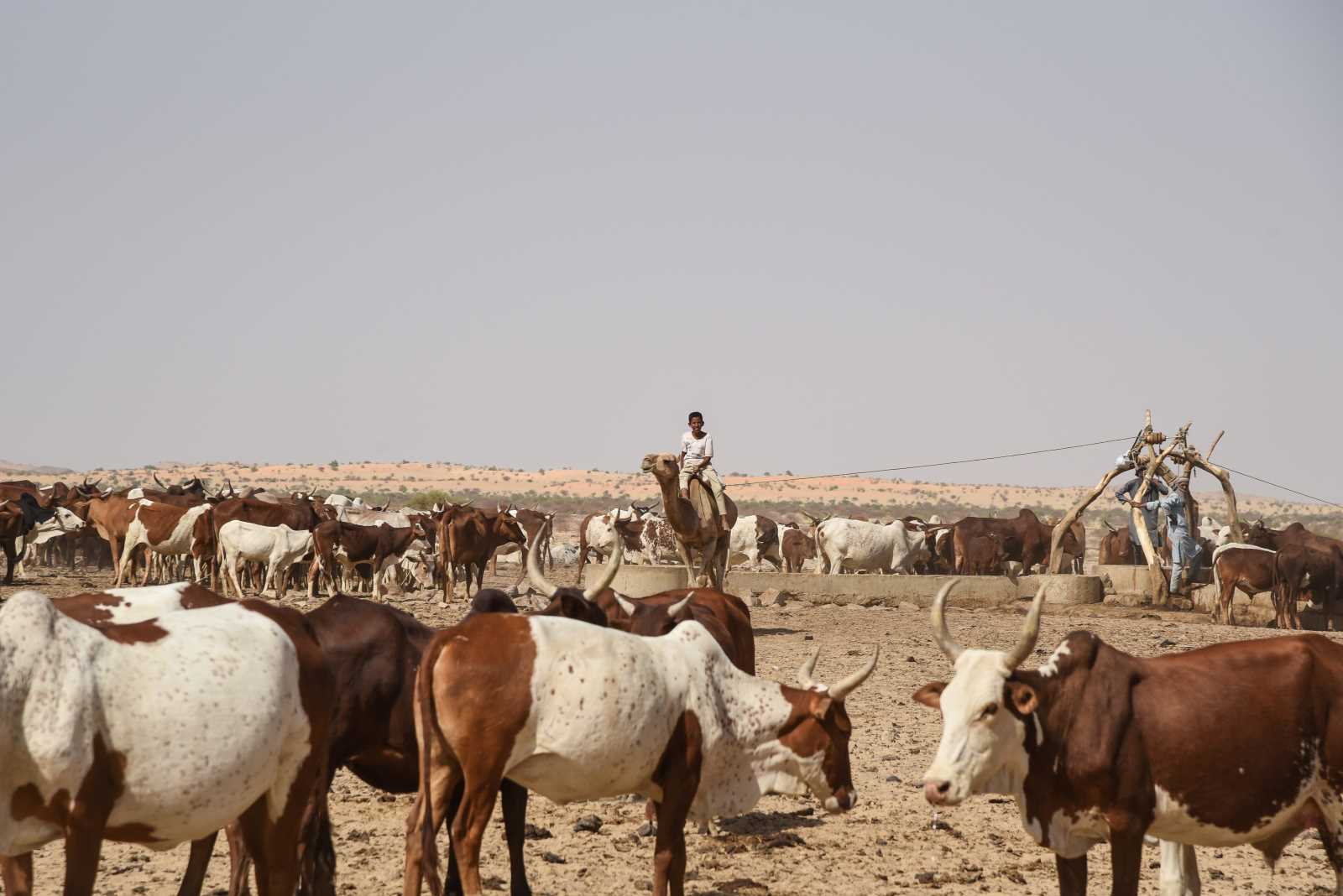Russia and China
BRICS-members are not coordinating their West-Africa strategies

Stability is what Russian leaders seem to be promising West African military regimes. Do they mean anything more than the use of violent force and the repression of dissent?
Well, the failed French intervention, which was meant to stabilise the Sahel region, had kinetic and non-kinetic dimensions. Kinetic means using force. The idea was to fight insurgents, but at the same time win people’s hearts and minds by building things like hospitals and roads as well as promoting democracy. The military regimes, for obvious reasons, rely on the use of force. So far, Russia has not shown much interest in non-kinetic issues, even though they are surely relevant. As I have been saying for a long time, however, the French and their international allies, including Germany of course, failed to understand underlying problems when trying to apply non-kinetic means.
What are those underlying problems?
The most important one is that relevant ethnic groups, especially the Touareg, do not identify with the nation states that supposedly represent them. The Touareg have been demanding a state of their own, and fighting for it, for a long time. So-called “Islamist” militants are exploiting the resentment local people in the northern parts of the Sahel region have felt for a long time. As I told you in our interview a few months ago, I don’t think the religious faith really matters very much. What matters is that vast areas of the northern Sahel have never had much of a state presence apart from violent oppression. The French troops did not change that, nor will Russian mercenaries who used to operate on behalf of the Wagner militia but are now under the direction of Moscow’s defence ministry with a new name.
Are they getting a grip on insurgents?
That is very hard to tell. Independent fact-finding missions have mostly become impossible. When authorities declare that so and so many so-called “terrorists” have been eliminated, we do not know how many were really perpetrators of violence and how many civilian casualties there were at the same time. Perhaps only innocent civilians died. The French largely ignored that supposed terrorists were often basically local politicians who represented local communities. In this regard, the Russians are no different.
What is driving the military regimes?
Well, they have been responding to imminent state failure. They are generally not very interested in non-kinetic approaches, but they do worry about military resources. In view of tight national budgets and the need to repay sovereign debts, many governments have been cutting defence spending. Military leaders do not like that. On the other hand, they do appreciate Russian support in military matters.
What is Russia’s track record in regard to resource exploitation?
The pattern is the same across Africa. When Russia becomes involved, they do not demand to be paid in monetary terms. They want to be paid in kind. They get the permission to exploit mines. These things are shrouded in secrecy, and there is very little accountability. The scenario serves both sides, the African governments and their Russian partners. It is a safe bet, of course, that neither side pays much attention to labour standards or environmental protection.
Do you see any coordination between Russia and China regarding security, public finance or business affairs?
No, they are both players in the ongoing scramble for Africa, but there is no strategic cooperation. When the BRICS, the alliance of Brazil, Russia, India, China and South Africa, started to make headlines, many Africans hoped that South Africa would become a leader that would coordinate BRICS efforts to develop the continent. Instead, South Africa really is only one of many African countries that hopes to become the recipient of BRICS largesse. It wants to attract as much investment and support as possible from other BRICS members. This group has not become an alternative to the G7 group of leading long-established economies. At the same time, other countries – Turkey and Saudi Arabia, for example – are showing increasing interest in our continent. They all want access to oil, metals, timber and other commodities, and they all want a military foothold. It is very much the old colonial pattern, with previously uninvolved foreign countries now claiming stakes.
How do African governments assess these things?
To a large extent, they probably do not think much about their nation’s future but try to grasp whatever opportunities arise in the short term. The priority is to stay in power. At the same time, they do not have strong capacities for shaping their nations’ fates.
Does it not irritate them that China is an important creditor but refuses to cancel loans when debt becomes overwhelming?
The Chinese typically postpone payments, or sometimes opt for some kind of barter trade. Indebted governments appreciate that. It lets them off the hook temporarily.
What do fragile statehood and the new scramble for access to resources mean for the future of ECOWAS, the Economic Community of West African States?
Well, ECOWAS certainly has serious problems. However, I would say that the underlying issues predate the Russian interventions in Sahel countries as well as the various contracts concluded with China. The two most important issues are that
- the leadership of member countries is not very dexterous and
- that all member countries have democracy deficits.
Corruption is rampant, for example, but the supranational entity cannot tackle it. We have beautiful ECOWAS papers dealing with many things, but those papers make very little difference in real life.
Please give an example.
ECOWAS has rules on how to prevent a violent overthrow of democracy, but those rules can hardly be enforced. Full-blown military interventions are not feasible, and sanctions are too weak. On the other hand, ECOWAS lacks rules to prevent power grabs by officeholders, for example when presidents decide to run for an unconstitutional third term. That happened in Côte d’Ivoire and, more recently, Senegal. In Côte d’Ivoire, President Alassane Ouattara got his way. In Senegal, determined protests ensured that President Macky Sall finally had to leave office and new elections were held. In both countries, the institutions failed. It actually resonates with many people when military leaders say that they really aren’t so different from elected policymakers. The plain truth is that the supranational ECOWAS cannot put right what is going wrong at the national level.
And that is especially true where, as you said earlier, the state seems to be absent from vast areas because there is no functioning system of subnational and especially local governance.
Exactly, and that is where anger and frustration are particularly dangerous.
After recent military coups, people actually rallied in support of both the regimes and their Russian allies. Do you think Russia has won those people’s hearts and minds?
It is too early to tell. What we know is that people really are fed up with France, the former colonial power. I do not think that military regimes can solve their countries’ serious problems, nor that their Russian friends have any serious advice on how that might be done. Most likely, people will start resenting the Russians too. Whether they will be allowed to express such feelings is obviously another question.
The climate crisis is a huge global challenge. It is making water even more scarce in the Sahel region. Western countries have been taking action to protect the climate, though it so far remains insufficient. Russia, by contrast, has no real track record regarding the mitigation of climate change at all. Does this issue have an impact on public opinion in West Africa?
Well, people are certainly aware of climate impacts. Heat is getting unbearable. Droughts hurt farmers, and so does flooding. People see what is happening, but I am not sure that has an impact on what they think about powerful far-away countries. It is interesting, however, that the military leadership in Burkina Faso has recently started a huge tree-planting scheme. The regime in Niger has announced something similar. They have certainly noticed that people are increasingly becoming aware of climate impacts. In the past, elected West African governments certainly did too little, both in the sense of raising public awareness and taking action to adapt countries to what lies ahead.
Are the military regimes doing a better job?
Once again, it is too early to tell. So far, we hear what they say, but we have yet to see what they will actually achieve. What I know for sure is that the scramble for Africa will go on, and that it will involve an increasing number of players. I don’t think France has left for good, for example. They’ll probably become engaged again sooner or later.
Vladimir Antwi-Danso is the dean and academic director of the Ghana Armed Forces Command & Staff College (GAFCSC) in Accra.
vladanso@yahoo.com











